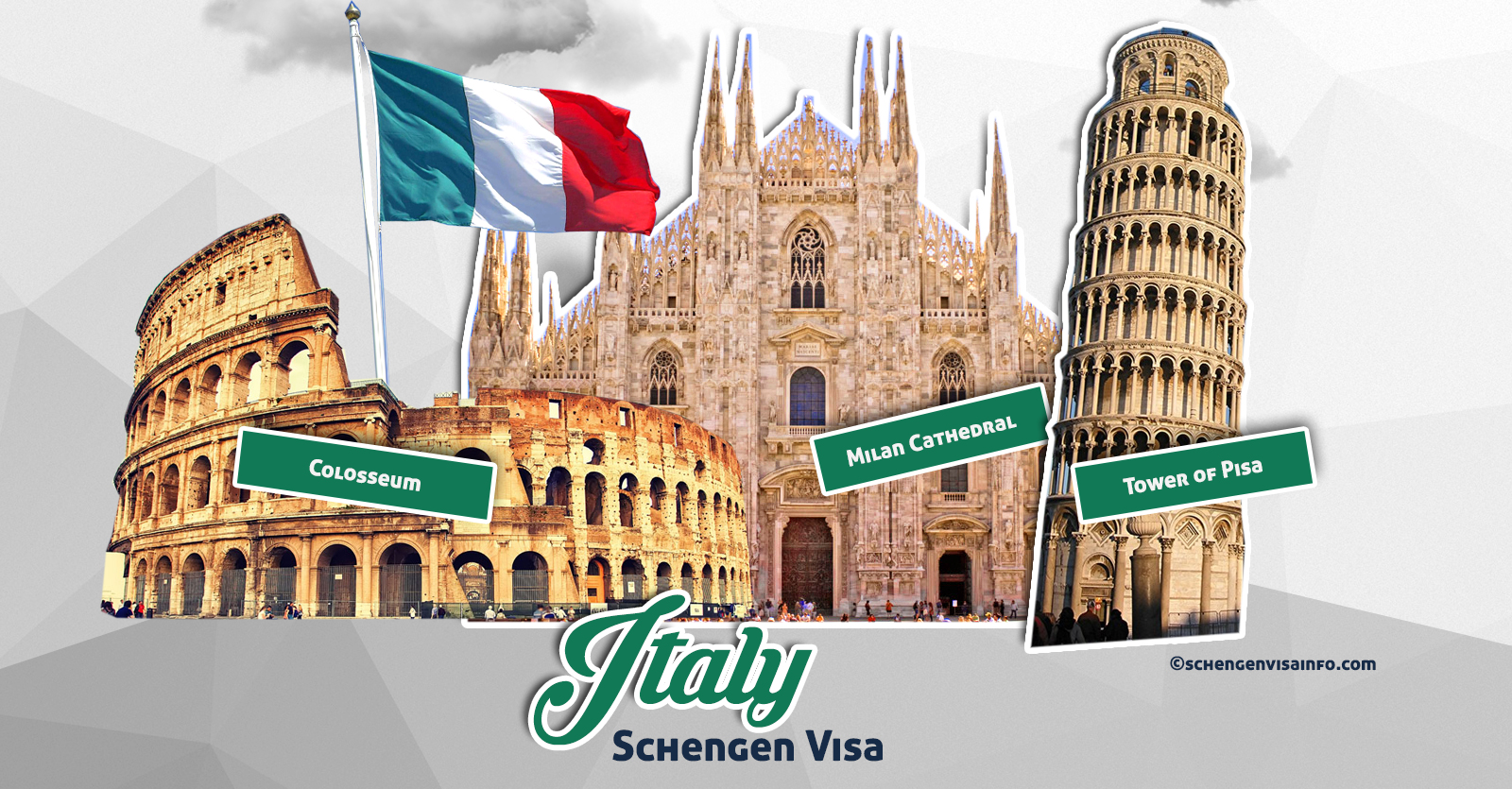Study In Italy
Why study in Italy
Germany is one of Europe's largest nations, with one of the largest populations. Although it has played a major part in European and world history, it has been a single, unified nation for less than 100 years. The area that now makes up Germany originally was a cluster of partially independent cities and states.
German universities have a quite good network with universities all over the world. Every year thousands of students have the opportunity to go abroad and spend some time in a different country, studying and living. This should be the same way for international students. Because of this, German universities and technical colleges try to provide enough university places for international students and they also make efforts to support them in many other questions concerning the time abroad.
Education System
Studying in Germany has changed during the process of Bologna and the changes resulted in the Bachelor and Master system. The first graduate degree obtained is called Bachelor. After this there is the possibility to continue with a deepening or additional Master program. Both are independent and accepted graduates.
Higher education in Germany are divided into:
⦿The large focus on research projects is also a reason for the good reputation of German universities. The state provides money for the research projects and this enables the student to do their own projects and learn in an actual real-life situation.
⦿Universities of ‘Applied Sciences’
⦿The entire system in Germany totals nearly 400 higher education institutions, with roughly 120 universities
⦿189 universities of public administrative sciences
⦿German Universities and their profession academic staff offer a high quality and up to date Education.

OVERVIEW
Known for some of the best intellectual and creative minds in history, Germany offers an affordable first rate education landscape set in the heart of Europe with endless possibilities for career growth, travel and cultural exploration.
QUICK FACTS
Name: Germany Federal Republic of Germany
Capital City: Berlin (3,440,441 pop.) (4,429,847 metro)
Germany Population: 81,147,265 (2013 est)
Ethnicity: German 91.5%, Turkish 2.4%, other 6.1% (made up largely of Greek, Italian, Polish, Russian, Serbo-Croatian, Spanish)
GDP per capita: $39,100 (2012 EST.)
Religion: Protestants 34%, Roman Catholic 34%, Muslim 3.7%, unaffiliated or other 28.3%
Why Choose VisaMantri
820+
Students
127
Universities
81
Countries
969
Immigrations
- Entry Criteria
- Visa Process
- Test Required
- Accommodation

1.A student aspiring to study in Germany should possess an above average academic record. All qualifications are assessed by relevant institutions to ascertain whether the student is eligible to be admitted into a certain course.
2. Requirement for a Bachelor is 12-year secondary school leaving certificate or Pre-University Examination and Studienkolleg (It is a preparatory course for academic study at university)
3. Requirement for a Masters is a University bachelor degree of 3 year or 4 year from a recognized university.

If a student wants to stay in Germany for longer than 90 day they will need a national visa.
This visa is issued for a stay of longer than three months, for example, for students wishing to attend a preparatory course at a “Studienkolleg” or those intending to complete a full university course.
For the period thereafter, student must apply for a residence permit from the foreigners’ authorities at place of study.

English Language: International Degree Programs are taught in English So the student needs to have a English proficiency test.
TOEFL min score required by most of the Universities is 86 and above.
IELTS min score required by most of the Universities is 6.5 and above.
GRE/GMAT Students can get admission without GRE and GMAT, but some of the Management schools may ask for a GMAT score. Even in schools where it is not asked, a student with a GMAT score will be given preference over one who has not given the test, provided the score is a good one. GRE is required for certain programs in some universities like TUHH, RWTH Aachen, Saarland University so on.

It is highly recommended to take up accommodation in the student hostels. Looking for private accommodation should be the last choice at least during the initial days.
Studentenwerk are hostels which provide a private room with shared kitchen (equipped with multiple electric stoves, Refrigerator, Freezer, Electric Oven, Cupboards, dining table with chairs etc), bath & toilet. The most popular form of accommodation among students is private shared accommodation, or “Wohngemeinschaften” (WGs) as they are known in German.
Private flats are preferred by students who want to live in own and like to have peace and quiet atmosphere, a small apartment may be the right choice. Furnished accommodation rents are high.
Immigration Opportunities

Canada
Canada offers various immigration opportunities for individuals looking to move to the country for work, study, or permanent residency. Here are some of the key immigration pathways in Canada:
⦿Express Entry System
⦿Provincial Nominee Program (PNP)
⦿Canadian Experience Class (CEC)
⦿Family Sponsorship
⦿Study Permits

Australia
Australia offers a range of immigration opportunities for individuals looking to move to the country. Here are some of the key immigration pathways in Australia:
⦿Skilled Migration
⦿Employer-Sponsored Visas
⦿Business and Investor Visas
⦿Student Visas
⦿Humanitarian and Refugee Visas

United Kingdom
The United Kingdom offers various immigration opportunities for individuals wishing to move to the country. The UK's immigration system is points-based, and there are several routes through which individuals can immigrate:
⦿Skilled Worker Visa (formerly Tier 2 General)
⦿Intra-Company Transfer Visa
⦿Student Visa
⦿Start-up and Innovator Visas

New Zealand
New Zealand offers several immigration opportunities for individuals looking to live and work in the country. Here are some key immigration pathways in New Zealand:
⦿Skilled Migrant Category (SMC)
⦿Work Visas
⦿Residence from Work
⦿Entrepreneur Work Visa
⦿Refugee and Protection Visas

Singapore
Singapore offers various immigration opportunities for individuals looking to live and work in the country. Here are some key pathways to immigrate to Singapore:
⦿Employment Pass (EP)
⦿S Pass
⦿EntrePass
⦿Permanent Residency (PR)
⦿Dependant Pass and Long Term Visit Pass
⦿Foreign Artistic Talent Scheme (ForArts)

USA
The United States offers a variety of immigration opportunities for individuals seeking to live and work in the country. Here are some key pathways to immigrate to the USA:
⦿Family Sponsorship
⦿Employment-Based Green Cards
➼EB-1 (Priority Workers)
➼EB-2 (Advanced Degree Professionals)
➼EB-3 (Skilled Workers, Professionals, and Other Workers)
➼EB-5 (Immigrant Investors)
⦿Temporary Work Visas
Our Stories & Latest News

What visa do you need to work legally in Singapore?
To work legally in Singapore, you typically need a valid work visa or work pass issued by the Ministry of Manpower (MOM) in Singapore. The type of work visa you need depends on factors such as your qualifications, skills, and the nature of the job you will be doing. Here are some common types of work visas in Singapore:
1.Employment Pass (EP)
2.S Pass
3.Work Permit
4.EntrePass
5.Personalized Employment Pass (PEP)

Top reasons for Australian working visa rejection
Australian working visas are typically issued based on specific criteria, and there are several reasons why an application might be rejected. Some common reasons for Australian working visa rejections include:
1.Insufficient Documentation
2.Ineligibility
3.Health Issues
4.Employment Sponsorship Issues
5.Overcrowded Occupations
6.Financial Insufficiency

The UK immigration & permanent residency consultants
When looking for immigration and permanent residency consultants in the UK, it's essential to find reputable professionals or firms to ensure you receive accurate and reliable advice. Here are a few reputable immigration consultancy firms in the UK as of my last update in January 2022. Please note that it's important to verify their current status and credentials before engaging with any consultancy services:
1.Fragomen Worldwide
2.EY (Ernst & Young)
3.Deloitte UK
4.Migrate UK
5.Smith Stone Walters
